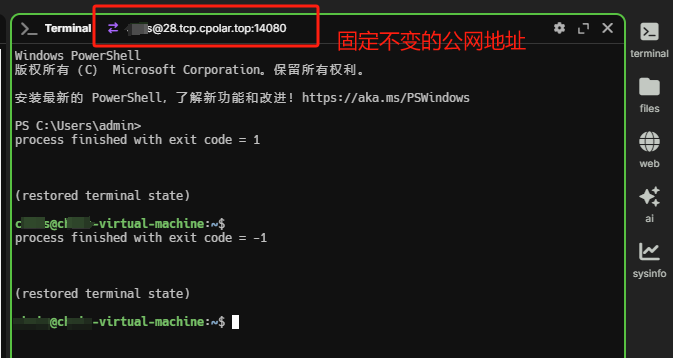1. 概述
由AI驱动的应用程序已成为我们的现实。我们正在广泛地实现各种RAG应用程序、提示API,并利用大型语言模型(LLM)创建项目。借助 Spring AI,我们可以更快速地完成这些任务。
在本文中,我们将介绍一个非常有价值的功能:Spring AI Advisors
,它可以为我们处理各种日常任务。
2. 什么是 Spring AI Advisor?
Advisor 是拦截器,用于处理我们 AI 应用程序中的请求和响应。我们可以使用它们为提示处理流程设置额外的功能。例如,我们可以建立聊天记录、排除敏感词,或者为每个请求添加额外的上下文。
该功能的核心组件是CallAroundAdvisor接口。我们通过实现这个接口,来创建一系列Advisor,它们会影响我们的请求或响应。下图展示了这些 Advisor 的执行流程:

我们将提示(prompt)发送到一个连接了多个 Advisor 的聊天模型。在提示被发送之前,链中的每个Advisor都会执行它的前置操作(before action)。同样地,在我们从聊天模型获取响应之前,每个Advisor会调用自己的 后置操作(after action)。
3. 聊天记忆Advisor(Chat Memory Advisors)
聊天记忆Advisor是一组非常有用的Advisor实现。我们可以使用这些 Advisor 为聊天提示提供交流历史,从而提升聊天响应的准确性。
3.1. MessageChatMemoryAdvisor
通过使用MessageChatMemoryAdvisor,我们可以在聊天客户端调用中通过messages属性提供聊天历史。我们将所有消息保存在一个 ChatMemory 实现中,并且可以控制历史记录的大小。
下面我们来实现一个这个 Advisor 的简单示例:
@SpringBootTest(classes = ChatModel.class)
@EnableAutoConfiguration
@ExtendWith(SpringExtension.class)
public class SpringAILiveTest {
@Autowired
@Qualifier("openAiChatModel")
ChatModel chatModel;
ChatClient chatClient;
@BeforeEach
void setup() {
chatClient = ChatClient.builder(chatModel).build();
}
@Test
void givenMessageChatMemoryAdvisor_whenAskingChatToIncrementTheResponseWithNewName_thenNamesFromTheChatHistoryExistInResponse() {
ChatMemory chatMemory = new InMemoryChatMemory();
MessageChatMemoryAdvisor chatMemoryAdvisor = new MessageChatMemoryAdvisor(chatMemory);
String responseContent = chatClient.prompt()
.user("Add this name to a list and return all the values: Bob")
.advisors(chatMemoryAdvisor)
.call()
.content();
assertThat(responseContent)
.contains("Bob");
responseContent = chatClient.prompt()
.user("Add this name to a list and return all the values: John")
.advisors(chatMemoryAdvisor)
.call()
.content();
assertThat(responseContent)
.contains("Bob")
.contains("John");
responseContent = chatClient.prompt()
.user("Add this name to a list and return all the values: Anna")
.advisors(chatMemoryAdvisor)
.call()
.content();
assertThat(responseContent)
.contains("Bob")
.contains("John")
.contains("Anna");
}
}在这个测试中,我们创建了一个包含 InMemoryChatMemory 的 MessageChatMemoryAdvisor 实例。然后我们发送了几个提示,要求聊天模型返回包含历史数据的人名。正如我们所看到的,聊天中提到的所有人名都被返回了。
3.2. PromptChatMemoryAdvisor
使用 PromptChatMemoryAdvisor,我们可以实现相同的目标——为聊天模型提供对话历史。不同之处在于,这个Advisor是将聊天记忆直接添加到提示文本(prompt)中。
在底层实现中,我们通过如下方式扩展提示文本:
Use the conversation memory from the MEMORY section to provide accurate answers.
---------------------
MEMORY:
{memory}
---------------------让我们看看它是怎么工作的
@Test
void givenPromptChatMemoryAdvisor_whenAskingChatToIncrementTheResponseWithNewName_thenNamesFromTheChatHistoryExistInResponse() {
ChatMemory chatMemory = new InMemoryChatMemory();
PromptChatMemoryAdvisor chatMemoryAdvisor = new PromptChatMemoryAdvisor(chatMemory);
String responseContent = chatClient.prompt()
.user("Add this name to a list and return all the values: Bob")
.advisors(chatMemoryAdvisor)
.call()
.content();
assertThat(responseContent)
.contains("Bob");
responseContent = chatClient.prompt()
.user("Add this name to a list and return all the values: John")
.advisors(chatMemoryAdvisor)
.call()
.content();
assertThat(responseContent)
.contains("Bob")
.contains("John");
responseContent = chatClient.prompt()
.user("Add this name to a list and return all the values: Anna")
.advisors(chatMemoryAdvisor)
.call()
.content();
assertThat(responseContent)
.contains("Bob")
.contains("John")
.contains("Anna");
}同样地,这一次我们使用
PromptChatMemoryAdvisor创建了几个提示,要求聊天模型考虑对话记忆。正如预期的那样,所有数据都被正确返回了。
3.3. VectorStoreChatMemoryAdvisor
使用VectorStoreChatMemoryAdvisor,我们可以实现更强大的功能。它通过向量存储中的相似度匹配来搜索消息上下文。在搜索相关文档时,我们还会考虑对话的 ID。
在我们的示例中,我们将使用一个稍作修改的SimpleVectorStore,当然也可以替换为任何向量数据库。
首先,我们来创建一个向量存储的 Bean:
@Configuration
public class SimpleVectorStoreConfiguration {
@Bean
public VectorStore vectorStore(@Qualifier("openAiEmbeddingModel")EmbeddingModel embeddingModel) {
return new SimpleVectorStore(embeddingModel) {
@Override
public List<Document> doSimilaritySearch(SearchRequest request) {
float[] userQueryEmbedding = embeddingModel.embed(request.query);
return this.store.values()
.stream()
.map(entry -> Pair.of(entry.getId(),
EmbeddingMath.cosineSimilarity(userQueryEmbedding, entry.getEmbedding())))
.filter(s -> s.getSecond() >= request.getSimilarityThreshold())
.sorted(Comparator.comparing(Pair::getSecond))
.limit(request.getTopK())
.map(s -> this.store.get(s.getFirst()))
.toList();
}
};
}
}在这里,我们创建了一个SimpleVectorStore
类的Bean,并重写了它的
doSimilaritySearch() 方法。
接下来,让我们测试一下基于相似度匹配的行为表现:
@Test
void givenVectorStoreChatMemoryAdvisor_whenAskingChatToIncrementTheResponseWithNewName_thenNamesFromTheChatHistoryExistInResponse() {
VectorStoreChatMemoryAdvisor chatMemoryAdvisor = new VectorStoreChatMemoryAdvisor(vectorStore);
String responseContent = chatClient.prompt()
.user("Find cats from our chat history, add Lion there and return a list")
.advisors(chatMemoryAdvisor)
.call()
.content();
assertThat(responseContent)
.contains("Lion");
responseContent = chatClient.prompt()
.user("Find cats from our chat history, add Puma there and return a list")
.advisors(chatMemoryAdvisor)
.call()
.content();
assertThat(responseContent)
.contains("Lion")
.contains("Puma");
responseContent = chatClient.prompt()
.user("Find cats from our chat history, add Leopard there and return a list")
.advisors(chatMemoryAdvisor)
.call()
.content();
assertThat(responseContent)
.contains("Lion")
.contains("Puma")
.contains("Leopard");
}我们让聊天模型填充列表中的一些条目;而在底层,我们进行了相似度搜索,以获取所有相似的文档。然后,聊天模型(LLM)在参考这些文档的基础上生成了答案。
4. QuestionAnswerAdvisor
在 RAG(检索增强生成)应用中,QuestionAnswerAdvisor 被广泛使用。使用这个Advisor时,我们会构造一个提示(prompt),请求基于准备好的上下文信息进行回答。
这些上下文信息是通过向量存储中的相似度搜索检索出来的。
让我们来看看它的工作机制:
@Test
void givenQuestionAnswerAdvisor_whenAskingQuestion_thenAnswerShouldBeProvidedBasedOnVectorStoreInformation() {
Document document = new Document("The sky is green");
List<Document> documents = new TokenTextSplitter().apply(List.of(document));
vectorStore.add(documents);
QuestionAnswerAdvisor questionAnswerAdvisor = new QuestionAnswerAdvisor(vectorStore);
String responseContent = chatClient.prompt()
.user("What is the sky color?")
.advisors(questionAnswerAdvisor)
.call()
.content();
assertThat(responseContent)
.containsIgnoringCase("green");
}我们将文档中的特定信息填充到了向量存储中。
随后,我们使用QuestionAnswerAdvisor来创建提示,并验证其响应是否与文档内容一致,结果确实如此。
5. SafeGuardAdvisor
有时候我们需要阻止客户端提示中使用某些敏感词。毫无疑问,我们可以使用SafeGuardAdvisor来实现这一目标——只需指定一组禁止词,并将其包含在提示的 Advisor 实例中即可。
如果搜索请求中使用了这些敏感词,Advisor会拒绝该请求,并提示我们重新描述内容:
@Test
void givenSafeGuardAdvisor_whenSendPromptWithSensitiveWord_thenExpectedMessageShouldBeReturned() {
List<String> forbiddenWords = List.of("Word2");
SafeGuardAdvisor safeGuardAdvisor = new SafeGuardAdvisor(forbiddenWords);
String responseContent = chatClient.prompt()
.user("Please split the 'Word2' into characters")
.advisors(safeGuardAdvisor)
.call()
.content();
assertThat(responseContent)
.contains("I'm unable to respond to that due to sensitive content");
}在这个示例中,我们首先创建了一个包含单个禁止词的SafeGuardAdvisor。然后尝试在提示中使用这个词,结果如预期所示,我们收到了禁止词验证的提示信息。
6. 实现自定义 Advisor
当然,我们可以根据自己的需要实现任意逻辑的自定义 Advisor。下面我们来创建一个 CustomLoggingAdvisor,它会记录所有的聊天请求与响应:
public class CustomLoggingAdvisor implements CallAroundAdvisor {
private final static Logger logger = LoggerFactory.getLogger(CustomLoggingAdvisor.class);
@Override
public AdvisedResponse aroundCall(AdvisedRequest advisedRequest, CallAroundAdvisorChain chain) {
advisedRequest = this.before(advisedRequest);
AdvisedResponse advisedResponse = chain.nextAroundCall(advisedRequest);
this.observeAfter(advisedResponse);
return advisedResponse;
}
private void observeAfter(AdvisedResponse advisedResponse) {
logger.info(advisedResponse.response()
.getResult()
.getOutput()
.getContent());
}
private AdvisedRequest before(AdvisedRequest advisedRequest) {
logger.info(advisedRequest.userText());
return advisedRequest;
}
@Override
public String getName() {
return "CustomLoggingAdvisor";
}
@Override
public int getOrder() {
return Integer.MAX_VALUE;
}
}在这里,我们实现了CallAroundAdvisor接口,并在调用前后添加了日志记录逻辑。此外,我们在getOrder() 方法中返回了最大整数值,因此这个 Advisor 会被排在调用链的最后一个执行。
现在,让我们测试这个新的 Advisor:
@Test
void givenCustomLoggingAdvisor_whenSendPrompt_thenPromptTextAndResponseShouldBeLogged() {
CustomLoggingAdvisor customLoggingAdvisor = new CustomLoggingAdvisor();
String responseContent = chatClient.prompt()
.user("Count from 1 to 10")
.advisors(customLoggingAdvisor)
.call()
.content();
assertThat(responseContent)
.contains("1")
.contains("10");
}我们已经创建了
CustomLoggingAdvisor并将其附加到了提示(prompt)上。现在让我们看看执行后的日志中发生了什么:
c.b.s.advisors.CustomLoggingAdvisor : Count from 1 to 10
c.b.s.advisors.CustomLoggingAdvisor : 1, 2, 3, 4, 5, 6, 7, 8, 9, 10正如我们所见,我们的 Advisor 成功地记录了提示文本和聊天响应内容。
7. 总结
在本教程中,我们探讨了一个很棒的Spring AI 功能——Advisors。通过 Advisors,我们获得了聊天记忆功能、敏感词控制以及与向量存储的无缝集成。
此外,我们还可以轻松地创建自定义扩展,以添加特定功能。
使用 Advisors,能够让我们以一致且简洁的方式实现上述所有能力。
私信1v1直连大厂总监解决职业发展问题「免.米」



















